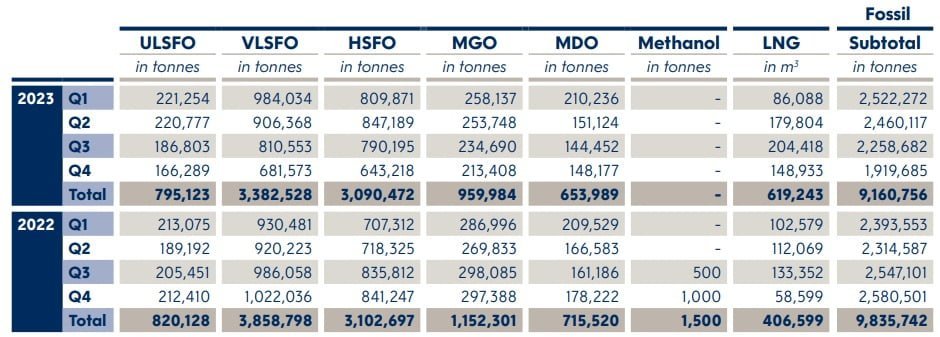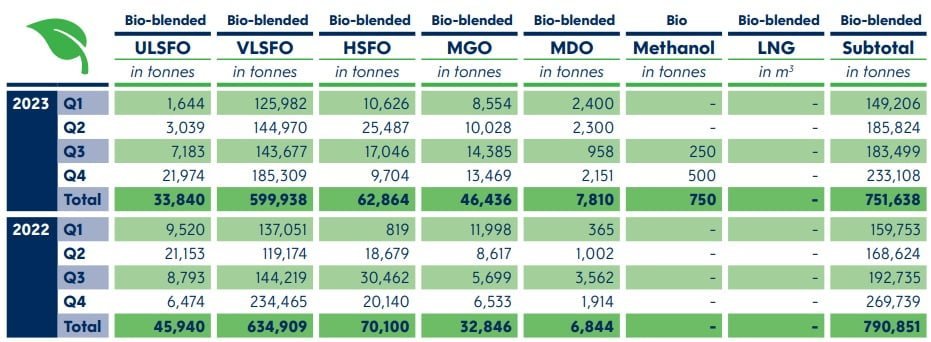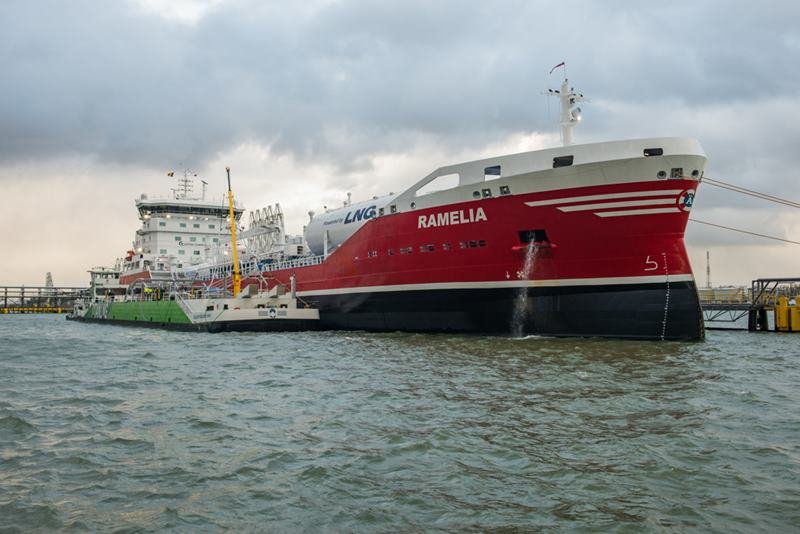The Port of Rotterdam, Europe’s largest bunkering port and a global maritime powerhouse, continues to assert its dominance as the world’s second-largest bunkering hub. In the face of dynamic shifts in fuel consumption patterns, Rotterdam has reaffirmed its position by bunkering 9.9 million tonnes of bunker fuel sales in 2023, witnessed a 6.7% decline, this figure reflects a strategic reduction from the 10.6 million tonnes recorded in 2022, yet Rotterdam’s adaptability shines through as it embraces alternative and renewable fuels. Notably, the port witnessed a significant surge in liquefied natural gas LNG bunkering, reaching 619,243 m3 in 2023. As the port navigates the evolving landscape, its commitment to sustainability and innovation propels it towards becoming the beacon of responsible bunkering practices globally.


Key Highlights of Bunker Fuel Sales Trends in 2023:
- Overall Decrease: Maritime shipping bunkered significantly less fuel in Rotterdam, experiencing a 6.7 percent decline from 10.6 million tonnes in 2022 to 9.9 million tonnes in 2023. This decrease is attributed to several factors, including fewer sea-going vessels arriving in Rotterdam and temporary price advantages of bunker oil in Singapore.
- LNG Surges: The demand for Liquefied Natural Gas (LNG) bucked the trend, witnessing a substantial increase from 406,599 m3 to 619,243 m3 in 2023. This surge is closely linked to developments in the price of LNG, showcasing Rotterdam’s adaptability to market dynamics.
- Biofuels Dip: Bunkering of biofuels, a key component of Rotterdam’s sustainability efforts, saw a reduction from 790,851 tonnes in 2022 to 751,638 tonnes in 2023. The decline is attributed to market dynamics and price considerations.
- Biomethanol Milestone: Notably, biomethanol was bunkered for the first time on the Laura Maersk, indicating Rotterdam’s commitment to exploring and integrating new and sustainable fuels.
Strategic Measures for Transparency and Efficiency:
- Bunker Measurement Systems: The Port of Rotterdam Authority, in collaboration with the Port of Antwerpen-Brugge Authority, announced a mandate for all bunker vessels to operate with officially accepted bunker measurement systems by early 2026. This initiative aims to enhance transparency, efficiency, and reliability in the ARA bunker market.
- Commitment to Sustainability: Rotterdam’s commitment to sustainability is reflected in its ever-expanding portfolio of eco-friendly bunkering options. The port envisions itself as the “bunker port of the future,” offering a diverse range of alternative fuels to meet the evolving sustainability goals of shipping companies.
Rotterdam’s Leadership in Sustainable Bunkering:
- Versatility in Bunkering Facilities: Rotterdam stands out as the first port in Europe to enable LNG bunkering and globally, the first to facilitate barge-to-ship bunkering of methanol. The port’s bunkering facilities cater to an expanding array of alternative fuels, showcasing versatility in meeting the needs of shipping companies.
- Pioneering Adoption of Alternative Fuels: While traditional fuels remain integral, Rotterdam has become a trailblazer in the adoption of alternative and renewable fuels. The port actively collaborates with stakeholders to develop and promote alternative fuels, contributing to the sector’s sustainable evolution.
- Diverse Range of Alternative Fuels: Rotterdam offers an extensive menu of alternative bunker fuels, including Ammonia, Biofuels, Electric shipping, Hydrogen, LNG, and Methanol. The selection process involves careful consideration of factors such as energy density, safety requirements, scalability, cost, and technical usability.
Driving the Industry Towards a Sustainable Future:
The Port of Rotterdam’s comprehensive approach positions it as a beacon of sustainability and innovation, steering the shipping industry towards a more environmentally conscious and responsible future. As a pivotal player in the sector, Rotterdam actively facilitates safe storage and bunkering processes, accelerating the adoption of sustainable fuels.
In envisioning itself as the “bunker port of the future,” Rotterdam reaffirms its commitment to empowering shipping companies to choose the most suitable sustainable fuel for their operations. The port’s dedication extends beyond fuel availability, aiming to shape a maritime sector that prioritizes environmental responsibility and embraces the challenges and opportunities of sustainable bunkering.
Source Port of Rotterdam

